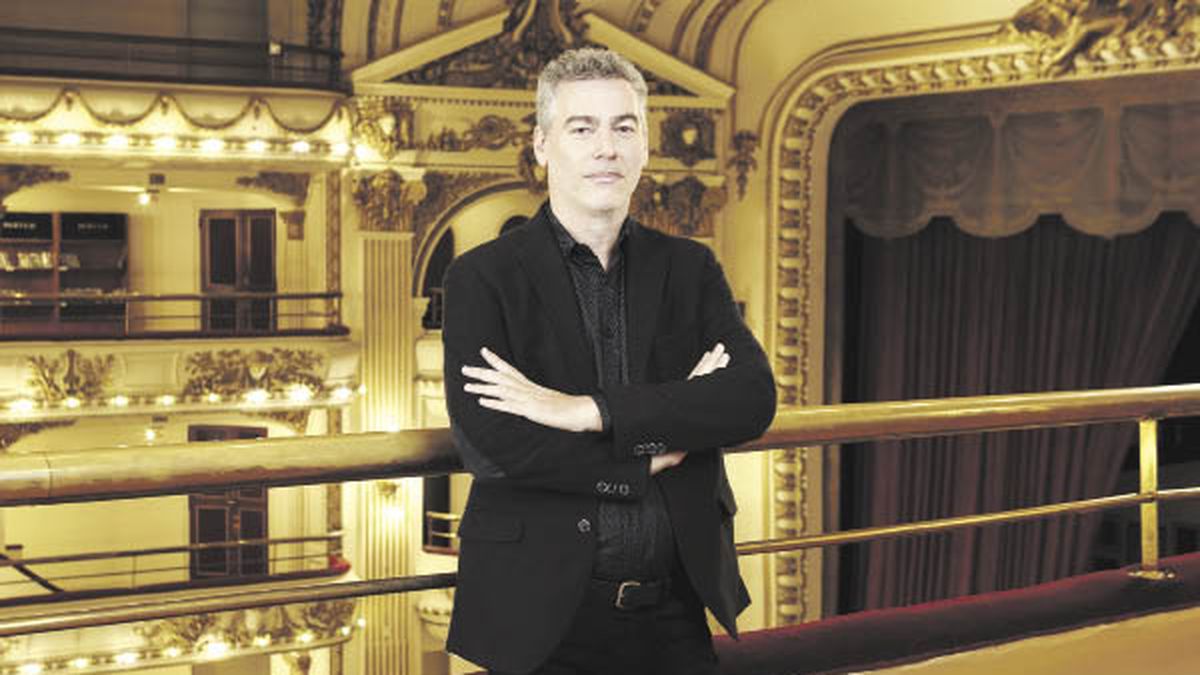Journalist: How did you face the transition to the image of the novel?
Sebastian Schindel: I read everything by this writer and there is something about the conflicts, the hesitations, the doubts and that subterranean energy between paragraphs that caught me and that’s why I fought so hard to get it. At the time of adapting it, I tried to return to those sensations to try to translate the essence to the script and screen. The audiovisual adaptation is not a literal translation from one language to another, it is a new work based on the novel, respecting its imprint. Martínez was the most important spectator for me, many times we did not agree on the process and I told him to trust, and he trusted.
Q.: In the film there is a gruesome succession of deaths, like the modus operandi of a psychopath or a serial killer, but is there anything like that?
H.H: I worried that deaths would not accumulate in a certain section of the film, but the reality is that Luciana’s character loses three relatives over ten years. This is very much anticipated at the beginning of the movie is not a spoiler. I tried to reiterate the proposal that there is in the novel that each death was a little more violent and spectacular than the previous one, there is a crescendo of violence. There is also the search for how each death corresponds to an element of nature, water, fire, air.
P.: The tension is maintained to reach the final twist.
H.H: There are tricks as a director and screenwriter. I always work on the path of adaptation making temporary breaks, those jumps, and non-linearity, are part of the challenge of adaptation and they help me to sow and maintain intrigue. The novel is divided into three main parts, two long conversations and a denouement. It is something very uncinematic, therefore I turn talks into events of the past, I come and go, I dose information, so that in each scene what has already been seen is resignified. That the viewer doubts who he believes, they are also three complex, dark characters, with things that embarrass them and that have a sinister side. And that has to be discovered until everyone discovers everyone.
Q.: The film has a climate of other times, what did you look for?
H.H: It presents a game with the timeless, takes place in an indefinite present and the protagonists are allowed to have smartphones and there is a daily newsroom like before, where they search with microfilms in the archive. They watch an interview recorded on a Betacam cassette. And there are many aesthetic issues that give a black police climate that is more from another era. So the locations generate that mood, with small distorting elements, like a land line telephone with a cord, that transport us to a fantasy world. Although someone films with a cell phone, he also has a landline phone on his desk, something that is far from reality. The present is always at night and it rains, for that we use giant fans that will generate that atmosphere of Gothic Buenos Aires.
Q.: Do you work a lot with actors?
H.H: I always like to have the characters well built, all chatted and agreed, that they have a clear idea of where to build from, but there is never so much time. Some like to rehearse more, others less. I am very much from the set, if I feel that the scene is not there, it is done until it comes out. The leading trio all have extremely difficult scenes, and many of the secondary ones come from the underworld, such as Lisandro Fiks as the prosecutor, Silvia Villazur as the landlady or Silvina Sabater as the lawyer.
Q.: How do you see the local film industry?
H.H: I think there is rich production in all genres, horror, police, romantic comedies, auteur films, it’s varied. Despite the problems brought by the pandemic, production is very much alive. The platforms open to different publics, which present a polarized character. I miss the rooms a lot but the possibility of seeing the products is on the platforms. And of course one makes films for someone to see; If not, it does not make sense.
Source: Ambito
David William is a talented author who has made a name for himself in the world of writing. He is a professional author who writes on a wide range of topics, from general interest to opinion news. David is currently working as a writer at 24 hours worlds where he brings his unique perspective and in-depth research to his articles, making them both informative and engaging.




